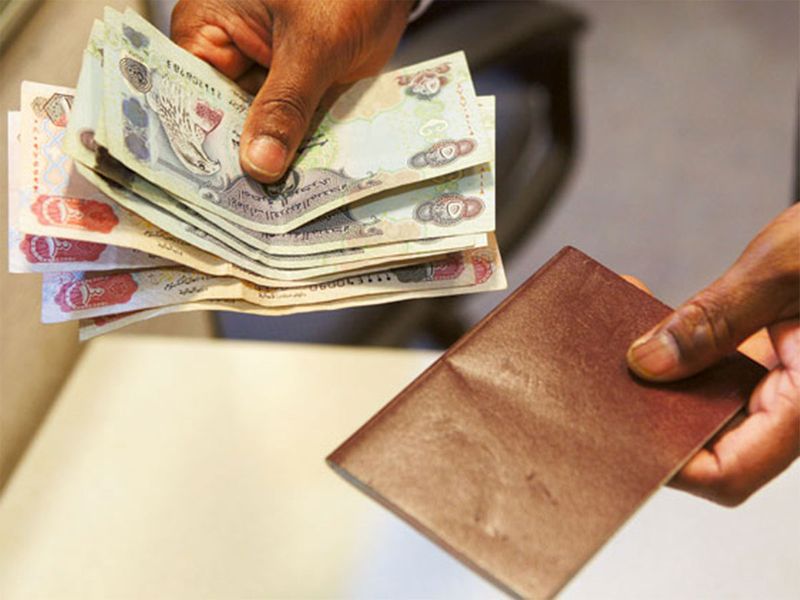“Bet on yourself if you want to take financial risks. And take financial risks if you get a chance while you’re young and have less,” says Brian Habibi, 35, the parents of this Palestinian-American expat had taught these lessons in him from an early age.
He has lived in Dubai since 1992 from the age of 5 apart from his time at university in the US. “I grew up in a business family. My father was an entrepreneur and my mother was a professor of economics.
“At a young age I started to understand the importance of betting on yourself and financial literacy. Since my father was an entrepreneur himself, and from a business perspective, entrepreneurship is perhaps the hardest thing to do. Still, I learned that it has the potential to be the most rewarding both personally and financially.
“I was lucky enough to grow up in a safe city and watch it turn into a major global player. I lived here, received an excellent education, had the opportunity to play several competitive school sports and built a strong network of friends across the world. around the world.”
Habibi was passionate about business from high school.
At a young age he decided and wanted to study business administration. “In high school, I took economics, accounting and business studies. These subjects helped me build a foundation to better understand marketing strategy implementation, supply and demand, pricing and identifying business opportunities. They also gave me a strong foundation for the business subjects I studied at university.”
He graduated from Saint Mary’s College, California in 2008 with a degree in business administration and began working in the marketing department of an FMCG food brand in 2009. “I became the head of the marketing department and oversaw all online and offline marketing initiatives.
“Here I led the development of a revised brand strategy to keep pace with the changing landscape of Arab women in the GCC and to ensure brand relevance and affinity with consumers. I developed and managed the marketing budget, used marketing, sales and technology knowledge – how to develop and launch a fully customized ERP solution (software that organizations use to perform day-to-day business activities such as accounting, project management, risk management, etc.) online initiatives.
Based in the UAE, Bayzat started as a financial comparison site and evolved into business software used to automate the company’s HR, payroll and insurance processes.
“Experience has taught me that each effort must be linked to specific objectives and identify the financial costs and potential rewards to allow proper analysis of the results.”
At the age of 27, Habibi, along with Talal Bayaa, then also 27, co-founded and launched Bayzat in 2014. Bayzat started as a financial comparison site and evolved into business software used to manage HR, payroll and payroll for automate the business. and insurance processes.
The company essentially empowers employers to give their teams unprecedented access to work, finance and medical benefits, while also giving employees access (via their smartphone app) to over 200 deals and offers in F&B, lifestyle and fitness and entertainment in the UAE.
The platform is hosted in data centers in the UAE and delivered to customers via the Software-as-a-Service (SaaS) model. (Allows users to connect to and use cloud-based apps over the Internet. Common examples include email, calendaring, and office tools.)
How did you choose this company and expand your services?
Bayzat was launched when the founders noticed and understood the need for a platform that offered greater transparency and online visibility to consumers looking for banking and insurance products.
“And when the UAE required companies to insure their employees, we decided to run the company in 2015. The website was well optimized for all banking and insurance lines; therefore, we started to receive a lot of inquiries for collective medical insurance, mainly within the SME (small and medium-sized enterprises) sector.
“As we partnered with an increasing number of companies in the UAE, we saw a clear opportunity to develop technology to improve the way companies bought and used their medical insurance. There were also fundamental issues with how companies used their HR or human resources. resources, insurance and payroll processes, with over 70 percent of UAE businesses relying on Excel and other legacy methods.”
So, how did you finance your business?
Habibi said the founders initially self-funded the company by continuing to work full-time while working nights and weekends for the company.
“When we were able to show a proof of concept, we raised our first few million dollars from family, friends and other individual investors. Today, the company has raised more than Dh132.2 million ($36 million) from a mix of individual investors , family offices and a variety of regional and international venture capitalists, such as BECO Capital, Mubadala and P72 Ventures.”

Bayza raised more than Dh132.2 million ($36 million) from a mix of individual investors, family offices and a variety of regional and international venture capitalists. (Photo used for illustrative purposes)
Two entrepreneurial lessons Habibi shares from his experiences
Lesson #1: There will be daily challenges in the business course, but be resilient and willing to embrace and steer change.
Habibi said that while entrepreneurship is a humble profession, you must be prepared for new challenges in your journey.
“When you start fooling yourself into believing everything is going smoothly, another curveball is thrown at you, forcing you to adapt.
“Each phase of the business and fundraising has presented different challenges, but we have moved on to hypergrowth. COVID-19 has been an accelerator for remote work, making it harder than ever to hire and retain top talent, making our offerings more relevant now than ever before.
“There have been countless challenges and lessons learned across all industries and sectors; something that struck me was the importance of remaining agile, resilient and willing to embrace change in order to survive and thrive in the new ‘normal’. These lessons are now embedded in our DNA as we have really adopted an ‘experimental’ mindset across the organization.”
Lesson #2: To properly manage cash flow, you must be proficient in forecasting and contingency planning.
He added that as his current company continued to raise money and generate additional revenue, they have become more adept at forecasting and preparing contingency plans to ensure they manage cash flow effectively. “Because we’re focused on ‘hypergrowth’ (rapid expansion where companies experience annual growth of 40 percent or greater), we’ve also learned that it’s harder to cut spending rather than identifying the right investment levers to manage cash flow and meet our budget (i.e. doubling in marketing, sales, etc.).”
What money rules or strategies do you personally follow in life?
Money Lesson: Don’t jump into investment opportunities that sound “too good to be true.”
Habibi said: “Bayzat is my most important investment and will hopefully represent the bulk of my future savings. I make sure all my other investments are well diversified.”
He and his wife set aside a certain amount of their monthly income for investments and manage their budget based on the remainder.
“We have diversity in our portfolio across equities, fixed income (bonds) and retail investments, investing small amounts in high-risk, high-reward opportunities and making sure it’s amounts we can afford to lose.

Habibi and his wife set aside a certain amount of their monthly income for investments and manage their budget based on the remainder.
“The breakdown of our current investment portfolio is cash – 20 percent, fixed income – 10 percent, equities – 50 percent, private investment – 15 percent and cryptocurrencies – 5 percent.
“Given my general outlook and the current economic and political environment, I intend to reallocate my portfolio in cash – 10 percent, fixed income – 7.5 percent, equities – 55 percent, private investment – in the very near future. 20 percent and crypto -7.5 percent.”
For his children, he believes that the future will hold more challenges; therefore, their ability to learn and adapt quickly will be critical to their success.
“Education is one of the greatest gifts you can give your children. My wife and I put aside monthly savings for the education of our two-year-old son.
“Ultimately, I believe the best investment I can make for my son’s future is to teach the importance of hard work, responsibility and honesty. Hopefully, with a little luck, he will succeed in whatever he chooses to do .”

